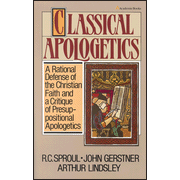Archive
Sculpturing and painting are gifts of God, but making images of him is idolatry
 Third division of the chapter, viz., the use and abuse of images.
Third division of the chapter, viz., the use and abuse of images.
12. I am not, however, so superstitious as to think that all visible representations of every kind are unlawful. But as sculpture and painting are gifts of God, what I insist for is, that both shall be used purely and lawfully, — that gifts which the Lord has bestowed upon us, for his glory and our good, shall not be preposterously abused, nay, shall not be perverted to our destruction. We think it unlawful to give a visible shape to God, because God himself has forbidden it, and because it cannot be done without, in some degree, tarnishing his glory. And lest any should think that we are singular in this opinion, those acquainted with the productions of sound divines will find that they have always disapproved of it. If it be unlawful to make any corporeal representation of God, still more unlawful must it be to worship such a representation instead of God, or to worship God in it. The only things, therefore, which ought to be painted or sculptured, are things which can be presented to the eye; the majesty of God, which is far beyond the reach of any eye, must not be dishonored by unbecoming representations. Visible representations are of two classes, viz., historical, which give a representation of events, and pictorial, which merely exhibit bodily shapes and figures. The former are of some use for instruction or admonition. The latter, so far as I can see, are only fitted for amusement. And yet it is certain, that the latter are almost the only kind which have hitherto been exhibited in churches. Hence we may infer, that the exhibition was not the result of judicious selection, but of a foolish and inconsiderate longing. I say nothing as to the improper and unbecoming form in which they are presented, or the wanton license in which sculptors and painters have here indulged, (a point to which I alluded a little ago, supra, s. 7.) I only say, that though they were otherwise faultless, they could not be of any utility in teaching.
John Calvin-Institutes of the Christian Religion-Book I-Chapter 11-Henry Beveridge Translation












Recent Comments